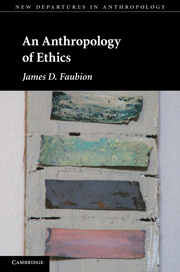Concluding remarks: for programmatic inquiries
Published online by Cambridge University Press: 05 June 2012
Summary
In his dismissal of the historical anthropology that Jean-Paul Sartre develops in his Critique of Dialectical Reason, Claude Lévi-Strauss pronounces of historical inquiry itself:
It consists wholly in its method, which experience proves to be indispensable for cataloguing the elements of any structure whatever, human or non-human, in its entirety. It is therefore far from being the case that the search for intelligibility comes to an end in history as though this were its terminus. Rather, it is history that serves as the point of departure in any quest for intelligibility. As we say of certain careers, history may lead to anything, provided you get out of it.
(Lévi-Strauss 1966: 262)I do not advocate a return to the high rationalism that in part motivates Lévi-Strauss' relegation of historical inquiry to the domain of the mail clerk and short order cook. I do, however, want to suggest (and have good reason to believe that I am following Lévi-Strauss in doing so) that much of what Lévi-Strauss pronounces of such inquiry should also be pronounced of ethnographic inquiry, into which what used to be thought of as sociocultural anthropology has increasingly dissolved from the mid-1970s forward. The catalysts of that dissolution are diverse.
- Type
- Chapter
- Information
- An Anthropology of Ethics , pp. 268 - 276Publisher: Cambridge University PressPrint publication year: 2011

